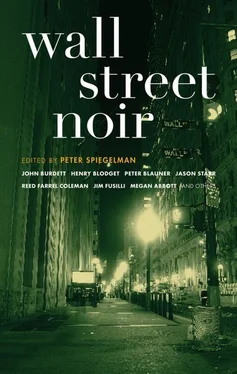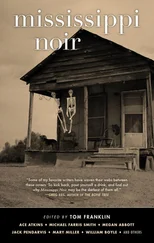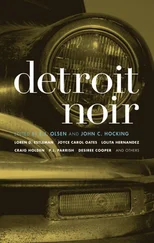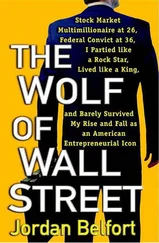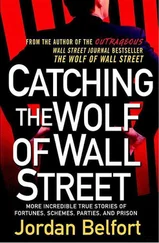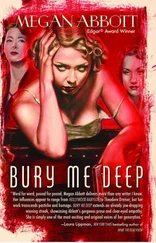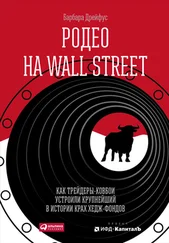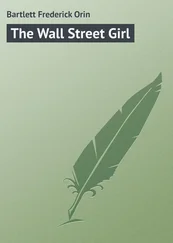“You a pilot or something?”
Trisha laughed. “Or something.”
“What’s that mean?”
“I’m an investment banker,” she said, as if that explained something.
The man nodded. “I’m Pete Dutton, by the way.” He removed his hand from the armrest and offered it to her.
“Trisha Tanglewood.” She briefly shook his hand. He had a firm grip and a surprisingly dry palm.
“Pleasure to meet you, Trisha.” He tipped an invisible hat.
“Yes, a pleasure.”
“How is it that a banker knows so much about planes?”
“I spent seven years analyzing the aircraft manufacturing industry — the last two years as chief analyst.”
“Really?”
“Really. If you’d like to discuss the relative merits of this aircraft as opposed to, let’s say, the Airbus A320, or why some airlines prefer Pratt & Whitney power plants over GE or Rolls Royce, just let me know.”
“No thanks. Too much knowledge makes me even more unsettled,” Pete said, trying to smile and failing. “I already have enough trouble thinking of jets as gas tanks with wings.”
“Well, that’s essentially correct; wings and seats.”
“Great. You’re a real comfort.”
As if on cue, the pilot wound up the turbofans and the jet began its urgent rumbling down the tarmac. Then they were off, gradually leaving Miami behind and beneath them. Trisha could see the near panic in Pete’s face as the servos repositioned the flaps and the bottom seemed to drop out of the starboard side of the aircraft, the captain turning west into the setting sun. In her own way, she was just as unsteady.
She had gotten what she thought she had wanted, a kick up the ladder. No longer could she hide herself in the shadow of tail fins or rotor blades. Trisha had been forced out of her cozy titanium, aluminum, and carbon fiber womb. The whole manufacturing sector was her gig now, all of it, everything from baby bottles to ball bearings, from farm equipment to pharmaceuticals. The days of simple, seamless trips to Seattle and Toulouse were no more. She was far less familiar with her new arena, an arena with a distinctly Third World flavor.
Trisha knew she was good at managing herself and her career. She was more than good, she was superior, and had handled her small team deftly. Problem was, the team had grown exponentially. And as much money as was at stake in aircraft manufacturing, it was penny-ante compared to the whole manufacturing shebang. Shebang, she thought, what a silly word, but her dad had used it all the time. He was full of quaint phrases and cowboy wisdom. Even now she had trouble accepting he was gone. Other than her job, he had been all she had. He would have been so proud of her. Remembering him, his crooked smile, his rough good looks, the day he gave her her first saddle, Trisha looked past Pete Dutton and out the window into the deepening night. And she found her eyes drifting back toward Pete’s face.
He seemed an interesting man, polite and unafraid to show vulnerability. She could count on one finger the number of male colleagues who would have dared display fear in front of her. On the Street, fear was weakness and weakness was death, and you never let it see the light of day. You battened it down, you plowed it under. You swallowed that bastard whole.
“Ladies and gentlemen, the captain has turned off the seatbelt sign, so you’re free to move about the cabin. However, when you are in your seat, we’d like it if you could keep your seatbelts on. The captain has also indicated that you may use all approved electronic devices, such as laptops...”
Trisha already had her tray table down, her Dell out of its case and booting up before the flight attendant had gotten past the first sentence of her announcement. She called up the file marked MM/ZIPS/H.1 Six months earlier Paisley Shutter had been retained by Mega-Mart, Inc., one of the world’s largest big box retailers, to look into the feasibility of acquiring PriceStar, Inc. PriceStar was an undercapitalized, debt-heavy, second-rung player in retail space, but the one big asset it possessed was its offshore textile plants. Their profit margin on their in-house clothing lines was the envy of the industry. And now that takeover talks had progressed from flirtation to third base, Trisha was going down to Honduras to make sure all the numbers that her team had given her checked out.
She owed due diligence not only to Mega-Mart, but to herself. Partnerships at Paisley Shutter didn’t get handed out like Halloween candy, and especially not to women. In fact, Trisha Tanglewood was the first woman under the age of forty to have even sniffed a partnership. Some of her male colleagues had warned her off making the trip at all. They were full of sage advice and playful chiding, but she understood the old-boy code better than they suspected. Her taking this trip not only made her look good, it made them look bad — worse than bad, lazy. Like her dad used to say, “If the crows’re gonna caw anyhow, you might as well give ’em a reason.” Fuck ’em! was the way they said it on the Street.
“Christ, how do you deal with all those figures?” Pete spoke up, peering at her screen. “Gimme anything more than three digits either side of the decimal point and I’m befuddled.”
Reflexively, Trisha slammed her laptop closed. She did it with such force that passengers from surrounding rows snapped their heads about to see what had happened.
“Whoa — sorry about that,” Pete said. “I didn’t mean to peek.”
“It’s okay,” she lied.
“No, it’s not. It was rude, and my momma schooled me better than that.” He pressed the call button.
Trisha didn’t know what to think but said nothing.
“I’m sorry to bother you,” Pete said when the flight attendant arrived, “but is there an empty seat somewhere? The lady wants to do her work and I’m afraid I’m disturbing her.”
“That’s not necessary,” Trisha said. “I’m fine.”
“Well, that’s a good thing,” said the flight attendant, “because we’re out of empty seats. Will there be anything else?... No? Enjoy the rest of your flight.”
There was a moment of awkward silence before Pete stood up and moved to the front of the cabin. Trisha’s face burned. She felt like an idiot, but what could you do — paranoia was standard equipment in her line of work, like a cell phone or a BlackBerry. How many deals had been poached by someone shoulder surfing at a Starbucks? How many times had she done it herself? Mistrust came with the territory.
Jesus Christ, Trisha wondered, what had happened to her? Where was the girl who’d won those blue ribbons for her trick riding back home in Wyoming? She stared out at the stars and thought of her father, and of Dancer. They once the two most important things in her world. Dancer was a roan, and to Trisha, the most graceful animal on God’s earth. She had been too young to remember her mother’s death, and Dancer’s was her first encounter with grief. Now everyone who mattered was gone. Suddenly there was little solace in her new title, and little protection in her paranoia.
“I hope you’ll accept this in the spirit of reconciliation,” Pete said, catching her off guard once again. He carried two plastic glasses filled with champagne.
“Where did you—”
“Ssshhhh!” He winked, sitting back down. “It’s a secret.”
“But how?”
“I make this flight twice a month, usually up front. Let’s just say the flight attendants and I have an understanding. Cheers.”
They drank and Trisha found her face forming a smile. It was an unfamiliar feeling.
“I’m sorry for overreacting,” she said. “Paranoia’s an occupational hazard.”
Читать дальше
